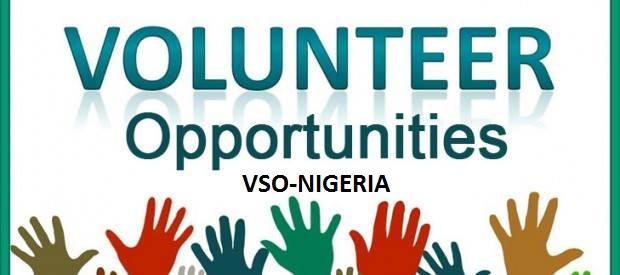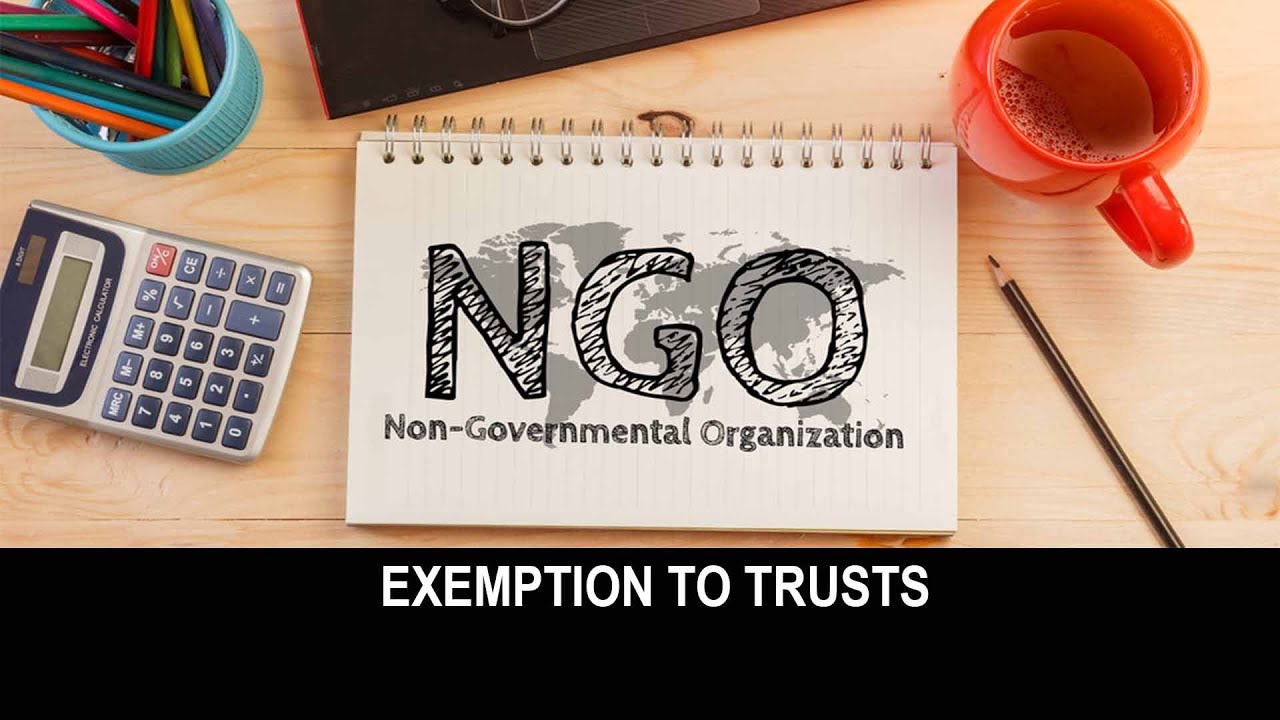
Table of Contents
- Introduction on How to get an NGO job in Nigeria
- Understanding the NGO Sector in Nigeria
- Types of NGOs Hiring in Nigeria
- Common Departments and Job Categories
- Why NGO Jobs Are Competitive
- Step-by-Step Guide to Getting an NGO Job
- Step 1: Understand Your Career Interest and Motivation
- Step 2: Choose a Sector or Thematic Area
- Step 3: Gain Relevant Education and Certification
- Step 4: Start With Volunteering or an Internship
- Step 5: Build a Targeted NGO CV and Cover Letter
- Step 6: Build Relevant Experience
- Step 7: Register on Trusted NGO Job Platforms
- Step 8: Network Within the NGO and Development Space
- Step 9: Prepare for NGO Interview Style
- Step 10: Stay Consistent and Keep Learning
- Common Mistakes to Avoid
- Skills That Make You Stand Out in NGO Jobs
- Where to Find NGO Jobs in Nigeria
- Final Thoughts
1. Introduction
How to get an NGO job in Nigeria. The nonprofit sector is one of the fastest-growing employment fields in Nigeria. With the continuous influx of international aid and development projects, NGOs in Nigeria provide thousands of jobs in areas like health, education, environment, governance, gender rights, and humanitarian relief. For many job seekers, working in an NGO represents a unique opportunity to earn a competitive salary while making a meaningful impact.
But here’s the truth on how to get an NGO job in Nigeria: NGO jobs are competitive. Many people want them, but not everyone knows how to get them. In this post, you’ll learn the full step-by-step process of how to land an NGO job in Nigeria and the easier path, whether you’re a fresh graduate or transitioning from another sector , all that you need is the information that will guide you.
2. Understanding the NGO Sector in Nigeria
NGOs, or Non-Governmental Organizations, are independent groups that work to address social, political, environmental, and humanitarian issues. In Nigeria, NGOs range from small local charities to large international organizations. Most are funded by donors such as:
- United Nations (UN) agencies
- USAID
- European Union (EU)
- Department for International Development (DFID)
- Global Fund
- Bill & Melinda Gates Foundation
These organizations often require staff to implement projects on the ground across the country, especially in rural and underserved areas.
3. Types of NGOs Hiring in Nigeria
The NGO ecosystem in Nigeria includes:
- Local NGOs: Registered in Nigeria and operate within the country.
- International NGOs (INGOs): Foreign-based organizations with operations in Nigeria (e.g., MSF, Save the Children).
- Faith-Based NGOs: Operated under religious institutions or beliefs (e.g., Caritas, Islamic Relief).
- Community-Based Organizations (CBOs): Smaller, grassroots-level groups.
Each type has different hiring processes, salary scales, and operational capacity.
4. Common Departments and Job Categories
Here are some of the departments where NGOs typically hire:
- Program/Project Management
- Monitoring and Evaluation (M&E)
- Health Services and Public Health
- Finance and Administration
- Human Resources
- Communications and Advocacy
- Grants and Proposal Writing
- Logistics and Procurement
- Legal and Policy
5. Why NGO Jobs Are Competitive
- Attractive salaries: Many NGOs offer salaries higher than public sector jobs.
- Capacity development: Exposure to global best practices.
- Purpose-driven work: Impacting lives and solving real problems.
- International exposure: Collaborating with global partners and donors.
This combination makes NGO roles highly desirable, meaning you need to stand out to secure one.
6. Step-by-Step Guide to Getting an NGO Job in Nigeria
Step 1: Understand Your Career Interest and Motivation
Before applying, ask yourself:
- Why do I want to work for an NGO?
- What cause am I passionate about?
- What value can I contribute?
NGOs want people who are both technically competent and genuinely interested in their mission.
Step 2: Choose a Sector or Thematic Area
NGO jobs are sector-specific. Some common focus areas include:
- Public health (HIV/AIDS, maternal health)
- Gender equality and women empowerment
- Education and literacy
- Climate change and the environment
- Youth development
- Humanitarian response (displacement, emergencies)
Choose a sector aligned with your education, interest, or experience.
Step 3: Gain Relevant Education and Certification
At a minimum, you need a bachelor’s degree. Many roles prefer a master’s, especially for senior positions. Choose a field relevant to your desired sector:
- Public Health for health-related NGOs
- Development Studies, Political Science, or Sociology for governance and social programs
- Economics or Statistics for M&E roles
- Accounting or Finance for admin roles
Recommended certifications include:
- PMD Pro (Project Management for Development Professionals)
- M&E Certification (e.g., USAID Learn)
- Proposal Writing and Fundraising Courses
- ICAN/ACCA for finance roles
- SHRM/CIPM for HR roles
Step 4: Start With Volunteering or an Internship
Most people enter the NGO sector by volunteering or working as interns. Volunteering helps you:
- Build experience
- Understand field operations
- Make professional contacts
- Gain references
Many interns transition to full-time roles when new projects are funded.
Step 5: Build a Targeted NGO CV and Cover Letter
Your CV must be:
- Clear and focused
- Tailored to the job and sector
- Quantifies your achievements
- Uses development-sector language
Include experience like:
- Fieldwork
- Community mobilization
- Proposal writing
- Project implementation
- Report writing
Also, write a customized cover letter that shows how your skills align with the NGO’s mission and project needs.
Step 6: Build Relevant Experience
Even outside the NGO sector, you can build transferable skills. For example:
- A teacher can become an Education Officer
- A nurse can transition into a Public Health Coordinator
- A journalist can work in NGO communications
Participate in community outreach, development research, or freelance M&E projects to strengthen your experience.
Step 7: Register on Trusted NGO Job Platforms
Create accounts and job alerts on trusted platforms like:
- ReliefWeb – www.reliefweb.int
- Devex – www.devex.com
- UN Jobs – careers.un.org
- MyJobMag – www.myjobmag.com
- Jobberman – www.jobberman.com
- NGOJobsAfrica – www.ngojobsinafrica.com
Follow major NGOs on LinkedIn and their official websites.
Step 8: Network Within the NGO and Development Space
Networking is key. Here’s how to build useful relationships:
- Attend conferences, workshops, and webinars
- Join professional forums like YALI or AIESEC
- Follow NGO professionals on LinkedIn
- Join WhatsApp or Telegram job groups for NGO jobs
- Reach out to NGO staff for informational interviews
Referrals or internal recommendations fill many NGO jobs.
Step 9: Prepare for NGO Interview Style
NGO interviews focus on competency-based questions such as:
- “Describe a time you managed a community program.”
- “How do you handle conflict with field teams?”
- “Explain a project you monitored and what you learned.”
They often test:
- Technical knowledge
- Donor compliance
- Cross-cultural communication
- Language skills (English or French)
- Problem-solving under pressure
Practice by researching Common Interview Questions for NGO Jobs and preparing real-life examples.
Step 10: Stay Consistent and Keep Learning
Persistence is essential. Rejection is part of the process. While applying:
- Continue volunteering or consulting
- Take free online courses (e.g., on Coursera or edX)
- Get feedback on your CV or interview performance
- Stay informed about global development trends
7. Common Mistakes to Avoid
- Applying with a generic CV not tailored to the role
- Ignoring the job description and missing required skills
- Underestimating soft skills like communication and teamwork
- Not doing research on the NGO’s work before the interview
- Poor follow-up or etiquette in email communications
8. Skills That Make You Stand Out in NGO Jobs
To compete effectively, develop:
- Project management skills
- Proposal writing and budgeting
- Data analysis (Excel, SPSS, Power BI)
- Community engagement and mobilization
- Strong writing and reporting skills
- Digital literacy and remote collaboration tools
9. Where to Find NGO Jobs in Nigeria
Besides the earlier-mentioned platforms, you can find jobs directly from:
Top NGOs Operating in Nigeria:
- Save the Children Nigeria – www.nigeria.savethechildren.net
- Plan International – www.plan-international.org/nigeria
- International Rescue Committee (IRC) – www.rescue.org
- Action Against Hunger (ACF) – www.actionagainsthunger.org
- MSF (Doctors Without Borders) – www.msf.org
- Catholic Relief Services (CRS) – www.crs.org
- UNICEF Nigeria – www.unicef.org/nigeria
- WHO Nigeria – www.who.int/countries/nga/
10. Final Thoughts
Getting an NGO job in Nigeria is possible with the right strategy, persistence, and preparation. Focus on gaining experience, upgrading your skills, and aligning your profile with the organization’s goals. The more impact-oriented and adaptable you are, the higher your chances of success, so what you need is to focus more
The development space is competitive, but also deeply rewarding. Suppose you’re genuinely interested in solving societal challenges. In that case, a career in the NGO sector is one of the best ways to build a purposeful and well-paying life in Nigeria.
Related content: Highest Paying NGO Jobs in Nigeria and Their Requirements






This Post Has One Comment